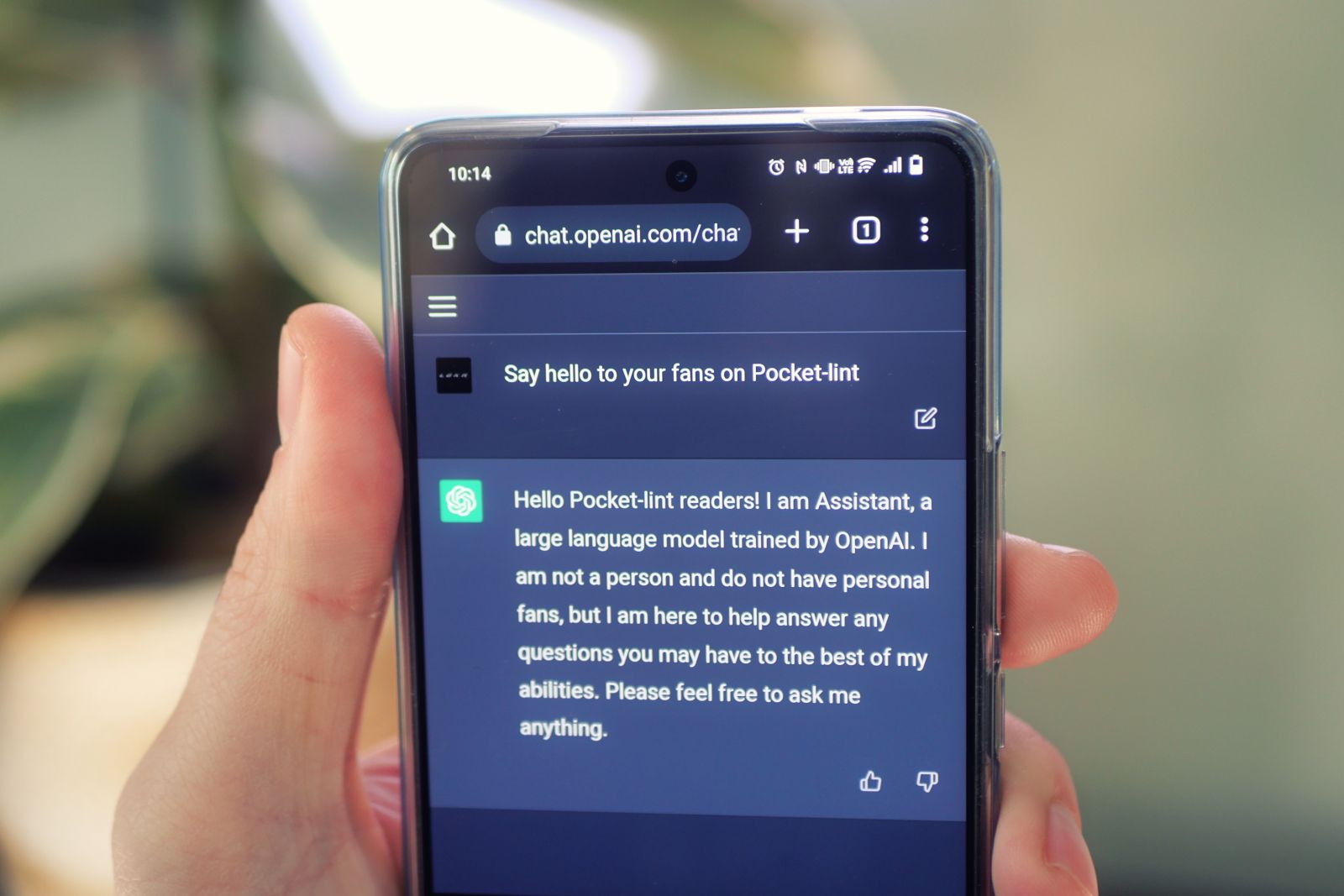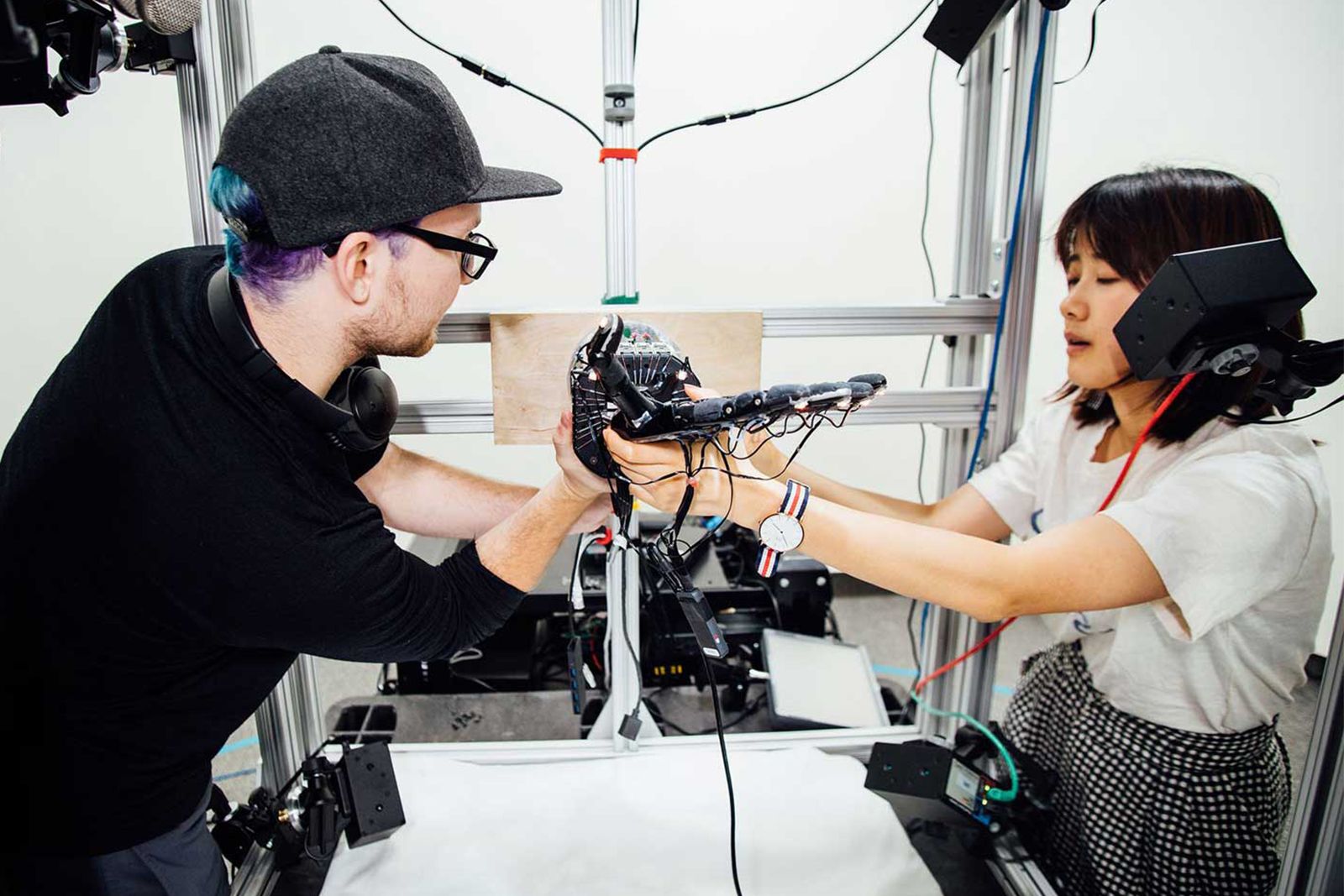Artificial intelligence, or AI as it's more commonly known, is getting incredibly powerful at an unprecedented speed.
You've likely seen all the AI-generated imagery that people are making with tools like DALL-E. These images have been all over our social media feeds as of late, with sometimes hilarious, but always impressive, results.
It's not just images that AI is getting really good at generating, though, it's also capable of incredible text generation.
That might not sound as impressive at first, but when you read some examples, what the system is capable of is truly stunning - if a little scary, for journalists like ourselves.
The latest text-based AI project has got the world abuzz, and it's called ChatGPT. In this article, we're going to tell you everything you need to know.
What is ChatGPT?
ChatGPT is the latest to come from the GPT family of text-generation AI systems, a project from the OpenAI foundation. You may have heard about its previous project, GPT 3, which worked more like DALL-E for text, generating words based on a prompt such as "write me a poem about Kanye West."
ChatGPT works more like an instant messaging service, and as the name suggests, it allows you to chat with the GPT AI in real time. Those of a certain age might remember SmarterChild on MSN Messenger or AOL. This is a lot like that, except that it works incredibly well now.
OpenAI said upon announcement, "the dialogue format makes it possible for ChatGPT to answer follow-up questions, admit its mistakes, challenge incorrect premises, and reject inappropriate requests."
The system is free for anyone to access during its "feedback" period. After which, OpenAI plans to use the user-generated feedback to improve the final version of the tool.
A limitation of the current system is that it doesn't have access to the internet, so you can't ask it things that you'd normally use Google Assistant or Siri for. If you ask ChatGPT about the weather, it replies:
"I'm sorry, but I am a large language model trained by OpenAI and don't have the ability to access current weather information. I'm not able to browse the internet or access real-time data. I can only provide information based on the text that I've been trained on, which has a fixed cutoff date. Is there something else I may be able to help you with?"
ChatGPT is quite good at self-censorship and prevents itself from providing fictitious accounts of events, it's still possible to get these falsehoods in your replies, but ChatGPT will warn you that it's fictional before continuing.
How to access ChatGPT
There's no app or software needed for ChatGPT, you just visit a website in your browser. It works on both mobile and desktop sites.
To try it out, head on over to chat.openai.com - you'll need to make an account, but it's free.
If you want to take your ChatGPT usage to the next level, OpenAI launched a subscription service called ChatGPT Plus in Feburary 2023. This is priced at $20 per month and offers priority access during peak times, faster responses, and the chance to try new features before anyone else.
What is OpenAI?
OpenAI is a research institute that focuses on artificial intelligence, it was founded in 2015 by Elon Musk, Sam Altman, and several other prominent individuals in the tech industry.
Elon Musk parted ways with OpenAI in 2017 as he felt there was a conflict of interest between the institute and Tesla, specifically in the area of autonomous driving.
OpenAI's goal is to advance the field of AI and to promote its safe and responsible development. The projects were traditionally all open-source and non-profit, though there is some controversy about whether or not that is still the case.
Elon Musk said on Twitter that "OpenAI was started as open-source & non-profit. Neither are still true." However, if you ask ChatGPT, it will assure you that "all of the organization's projects are made available to the public free of charge."
What's next for OpenAI?
The company recently launched GPT 4, it's most advanced language model yet, and you can expect this new version to be applied to countless text-based applications.
If you've tried out Microsoft's AI-based Bing Chat, that was actually already running on an early version of GPT 4 - and we're expecting its functionality and usefulness to improve quickly.
In September 2022, the organisation announced Whisper, an open-source neural network that nears human-level speech recognition. We're expecting updates and improvements to this project, too.
Of course, there's the incredible DALL-E 2 image generation tool, that many will have seen examples of. At some point, we'll no doubt see an even more capable tool, called DALL-E 3.
As for everything else, we'll have to wait and see.


